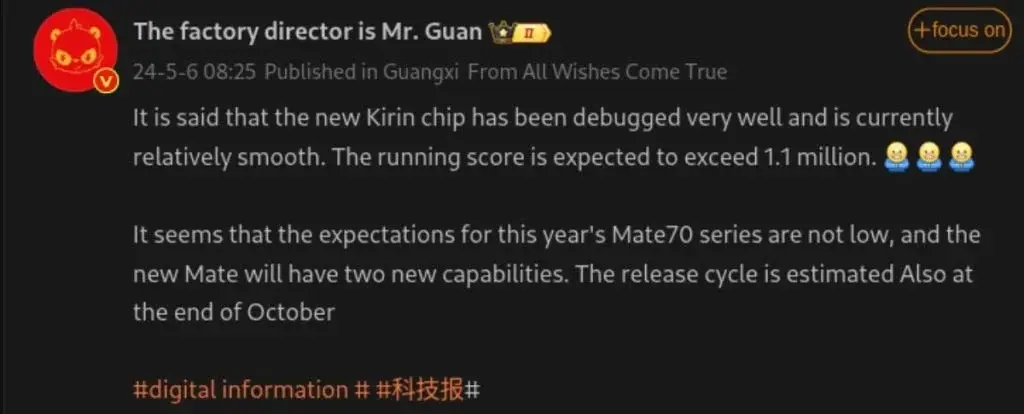Following months of anticipation, Huawei has now confirmed that the Mate 70 series will be released in the fourth quarter of 2024, targeting a launch window between October and December.
Huawei Consumer Business Chairman Yu Chengdong disclosed that the Mate 70 series will be the first to come with the stable version of HarmonyOS NEXT pre-installed.
HarmonyOS NEXT Launch
Huawei introduced the HarmonyOS NEXT at the HDC Developer Conference today. This new version completely abandons the Android Open Source Project (AOSP) codebase, meaning that Huawei devices running this OS will not support Android apps at all.
The Mate 70 series will debut the stable version of the new OS. Following its release, Huawei plans to extend the major software update to other devices. The company has already started Beta testing the OS on the Mate 60 series and several other devices starting today.
Hardware and Camera Specifications
Details about the Mate 70 series hardware remain limited, but leaks indicate that the Pro model will retain the triple punch-hole display design seen in its predecessors. However, it’s uncertain if this design will be consistent across the entire series.
For reference, the Mate 60 Pro includes a 13-megapixel ultrawide selfie camera, a 3D ToF sensor, and additional sensors and lasers for 3D face mapping. The Mate 70 Pro is expected to use the same set of front sensors.
The rear camera setup is another focal point for leaks. The Mate 70 series could incorporate upcoming Omnivision sensors for enhanced image and video quality. Additionally, the top model in the series might feature a retractable lens, similar to the one found in the Huawei Pura 70 Ultra.
New Kirin Chip
The Mate 70 series is also rumored to include a new Kirin chip, although specific details about the chip are still scarce at this time.



